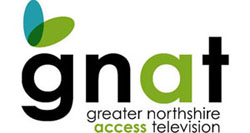Business Association makes it pitch to share option tax money

Andrew McKeever
GNAT-TV
MANCHESTER — The Manchester Business Association is hoping the town’s Select Board will give a thumbs up to a proposal made Tuesday, Oct. 24, during the board’s regular meeting, to share a portion of anticipated local option tax revenues with them.
The money would be used to help build and bolster the organization, formed last year in the wake of the collapse of the Manchester and the Mountains Regional Chamber of Commerce, Paul W. Carroccio, the association’s president, told the select board members. The marketing efforts the group has spearheaded so far have helped boost local option tax revenues received by the town, and enhanced financial support from the local option tax — a 1 percent surcharge on top of existing sales, rooms, meals and alcohol taxes — would be paid for largely by visitors that would enable the group to do even more promotion and marketing.
“The thought here is that as revenues from our local option tax grow …. We want to share in it to fund our efforts which continue to make this grow,” he said during a power point presentation to the select board.
Carroccio presented a projection of anticipated local option tax revenues from 2019-2029, and a proposal on how the town and the business association would share in the anticipated revenue growth. Starting from an anticipated baseline of $1.27 million, any revenues between 5 -10 percent above that number would accrue to the business organization. The town would keep the first 5 percent above the $1.27 million, and also any money from 10 percent above it, leaving the association with a slice between the 5 and 10 percent growth rate, if such growth in fact occurred.
Another factor which will be playing into the formula are internet sales. Vermonters buying products online from e-commerce vendors such as Amazon will now be required to pay a 6 percent sales tax, or more precisely, a use tax, upon purchase. The state’s tax department recently signaled a more aggressive approach to collecting this tax, which relies heavily on voluntary compliance, and can be confusing. Amazon began charging sales tax on purchases made by Vermonters only this year; other online retailers do not necessarily do so. The issue has been further muddied because the state legislature, and the tax department, only have jurisdiction over retailers with a physical presence in the state, making enforcement problematic.
However, Carroccio and the business association see online sales revenue likely to rise, and those monies could be plowed back into the town to help local businesses get a marketing boost.
“We don’t know how that will impact it (the projected sales tax numbers), but the way we feel is, why not use those dollars from the internet companies to market our own local companies,” he said, adding those revenues would be used to market the town and its businesses.
The share of the local option tax revenues would be used to supplement the associations own internal fundraising from donations and website advertising, he said.
The proposal drew an interested response from the board, if not an outright embrace. It would require the board members to consider it further, said board chairman Ivan Beattie, who noted that the local option tax was originally approved as a vehicle to stabilize local property taxes. Furthermore, the town had already been helping marketing the town and its local businesses by allocating marketing funds, board members said. Last April, the select board transferred a marketing initiative account, a blend of private and public money totaling nearly $70,000 — about $25,000 of which was public taxpayer money — to the business association to help it get up and running.
“We never had a vehicle by which we could share a portion of that revenue back to the business community, without violating our basic premise in that it was supposed to reduce property taxes, and it’s important to note that business property owners all benefit from lower property taxes, ” Beattie said. “This is a very creative idea, and I’m open to discussion of it (referring to the association’s proposal)… I’m going to look very carefully at it,” adding he was not going to buy into it right away and more discussions would have to follow.
Select Board Vice Chairman Wayne Bell followed Beattie by saying that he thought the town was already a “significant partner” in numerous events, such as the street fairs of recent years, as well as infrastructure improvements, like the roundabouts, benches, professional services and road improvements that have played a role in marketing the town and which have added costs to the municipal budgets over the years.
“If we were just a town of 4,000 (people) and didn’t have much commerce or visitors, we wouldn’t really have any of these expenditures,” he said. “Part of the logic using money generated by the businesses was to offset that expense too.”
The select board also indicated strongly that it remained concerned that revenues raised in Manchester be exploited for the town and that sharing that revenue across a broader region of neighboring towns would not be viewed favorably, even though they realized Manchester wasn’t “an island unto ourselves,” as Beattie said at one point near the end of the nearly hour-long discussion.
“Working for the Manchester voters and taxpayers, we have to be really provincial as to how we use their dollars,” he said. “We have to make sure we’re not taking what should be a 100 percent contribution to the town and diluting it to other communities that are also not contributing to that pool.”





